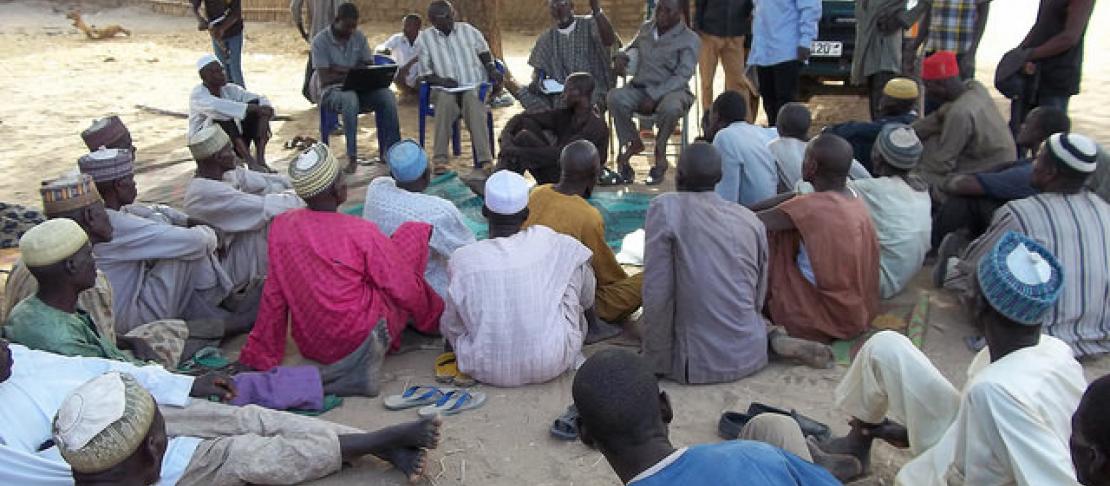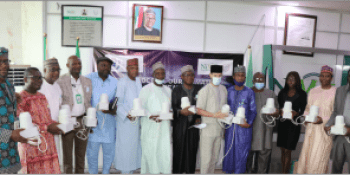A real opportunity to scale up Climate-Smart Villages in Niger

In Niger, the World Bank is financing a project inspired by the Climate-Smart Village model of Kampa Zarma.
In August, the 3N (Nigeriens Nourish Nigeriens) facilitated a formulation workshop of a climate-smart agriculture project in Niger. The CGIAR Research Programme on Climate Change, Agriculture and Food Security (CCAFS) West Africa programme was among the attendees of the workshop, which was led by the 3N High Commission in partnership with the World Bank.
About the World Bank-funded CSA project in Niger
Led by the 3N High Commission of Niger, it is a seven year-long project (from 2016 to 2023) with a total budget of USD 111 million. The objective is to increase agricultural productivity and enhance drought resilience of agro-pastoral systems in 60 targeted communes in Niger.
Although the project is primarily focused on building resilience, it will attempt to deliver on the triple win of climate-smart agriculture (CSA): improving productivity, building resilience, and reducing emission in selected locations in Niger. This is why the International Crops Research Institute for the Semi-Arid Tropics (ICRISAT), the International Center for Tropical Agriculture (CIAT) and CCAFS were invited to participate in the formulation workshop of the Niger CSA project.
A real opportunity to scale up the Climate-Smart Village model across the country
With the Participatory Action Research (PAR) team of INRAN, CCAFS organized a field visit to the Kampa Zarma site to show a concrete CSV to a team of representatives of the World Bank, the HC3N and the project consultancy bureau. This was the first time a delegation of this importance visited a CSV in Niger. During the field visit, participants had discussions with people from Kampa Zampa village and visited various CSA options that are implemented in the individual fields of famers including Farmer Assisted Natural Tree Regeneration, zaï (or tassa) and improved varieties of millet.
CCAFS, being the CGIAR Research Program (CRP) in charge of climate change, will certainly lead the scientific and technical component of the CGIAR contribution to the project.
The participation of CCAFS to the workshop and the field visit have been very much appreciated by participants and by the project team, thus giving hope that the CSV model could be adopted as an approach within the Niger CSA project.
“What we have seen here in Kampa Zarma in Niger is a window to scale up the work that CCAFS has done, to scale up the CSV model from village to commune, to scale up the planning work within the CSV model and, also to scale up sustainable land management through “cash for work” in our safety nets programme in Niger," said Amadou Bâ, Senior Agriculture Economist at The World Bank.
As a next step, CCAFS will work closely with ICRISAT and CIAT to develop a joint methodological and partnership proposal for the implementation of the Niger CSA project.
How can CCAFS contribute to the Niger CSA project?
Based on CCAFS’ mandate, its experiences and ongoing action research activities in CSA within the five West African pilot countries (including Niger), the CCAFS West Africa Regional Program can contribute to backstopping two of four components of the Niger CSA project. These components include scaling up of CSA practices and strengthening of CSA institutions and support services delivery.
With regards to scaling up CSA practices, CCAFS could help identify promising CSA options and support the prioritisation of CSA investment in Niger. Concerning the strengthening of CSA institutions and support services delivery, CCAFS West Africa has successfully initiated a sound approach to designing tailored climate information services and to communicate them appropriately to farmers for their farm management decision making vis-à-vis of climate variability.
Watch the video: Putting climate information into farmers' hands
Read more: Project launched to building resilient agroforestry pastoral systems in West Africa
Mathieu Ouédraogo is a PAR scientist working at CCAFS West Africa.



